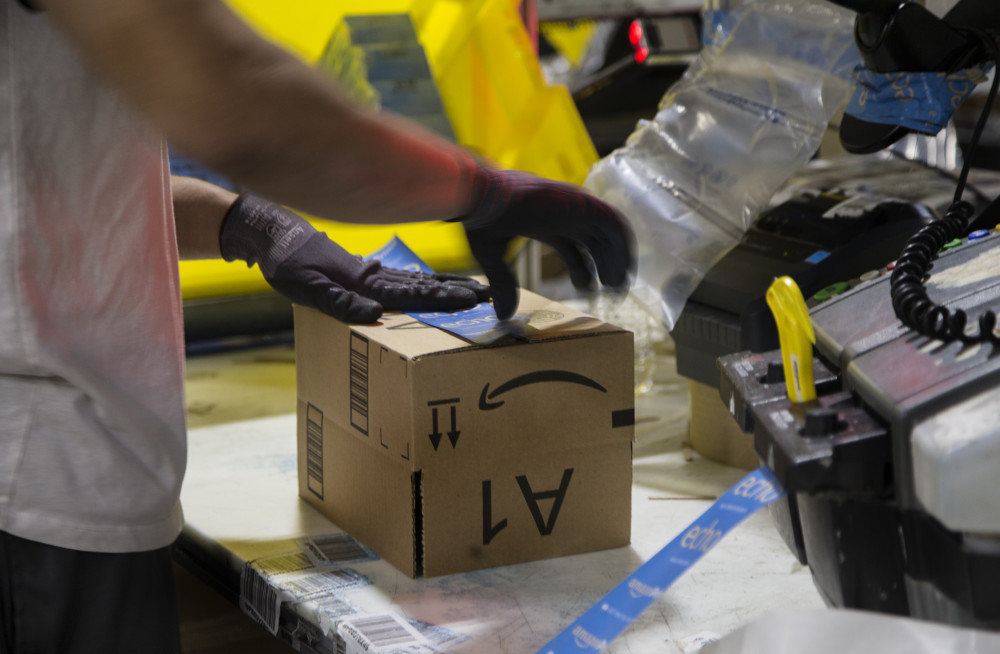By John Gallagher
Detroit Free Press
WWR Article Summary (tl;dr) John Gallagher of the “Detroit Free Press” compares Denver to Detroit as a potential home for Amazon’s second headquarters — a windfall that will bring some $5 billion in new investment and up to 50,000 new jobs over 20 years.
Detroit Free Press
The New York Times recently tested Amazon’s site-selection criteria for its second headquarters against 60 U.S. cities.
It eliminated 59 of them for failing in one or more ways, declaring Denver as the only place to fully meet Amazon’s needs and desires.
By coincidence, I visited Colorado last week and spent a few days in Denver. I saw a lot of what could make Denver appealing to Amazon and a few things that might work against it in Amazon’s decision making.
So today I’ll compare Denver to Detroit as a potential home for Amazon’s second headquarters — a windfall that will bring some $5 billion in new investment and up to 50,000 new jobs over 20 years.
If nothing else, a Denver-Detroit match-up may help clarify where Detroit lags in the contest for America’s richest corporate relocation.
Perhaps the clearest way in which Denver outranks Detroit is public transit.
Amazon says it wants its chosen city to offer a full range of transit options, from light rail and streetcars to a high-speed link to the airport. Denver offers that, Detroit doesn’t.
Denver’s regional transit system operates nine light-rail lines to 53 stations with more on the way. Free shuttle buses run along downtown’s 16th Street Mall. Denver plans even more investment in transit.
And Denver’s classic Union Station is the hub not just for transit but for transit-oriented development, with multiple new high-rise residential towers under construction steps away.
Compare that to metro Detroit’s anemic transit offerings — separate city and suburban bus lines, no regional light rail, no regional bus rapid transit, and voters who turned down the most recent ballot initiative to pay for a more robust transit system. When it comes to the transit that Amazon said it wants, Denver beats Detroit by a mile.
Then, too, Denver outplays Detroit when it comes to an educated workforce. About 38% of metro Denver’s residents hold a bachelor’s degree or higher, compared to about 28% of metro Detroiters. That could make a big difference given Amazon’s need for an educated, tech-savvy workforce.
But, on a closer look, transportation and education may not prove to be such solid wins for Denver.
Denver offers good light rail but also suffers much worse traffic congestion than Detroit. According to the widely viewed TomTom Traffic Index, Denver suffers the 25th worst traffic congestion in the nation, Detroit a more bearable 41st ranking. I drove Denver’s roads and highways last week and found some of them reminiscent of California-level jams.
And while Denver residents on average are better educated than metro Detroiters, when you drill down to the kind of skills Amazon said it wants, the advantage may not seem so clear.
The University of Michigan’s computer science program far outranks that of the University of Colorado-Boulder in the U.S. News & World Report rankings — 13th place for UM’s computer science program versus 40th for UC-Boulder’s.
Amazon also wants a town with a growing employment base in technology jobs. Here, too, Denver outranks Detroit, at least on the surface. The Brookings Institution, using U.S. Census findings, reported recently that Denver’s tech employment grew 5.4% from 2013 to 2015. Detroit’s tech workforce grew at a slower 3.4% pace during that time.
But of course Detroit’s technology workforce has been booming just the past couple of years, thanks to the efforts of businessman Dan Gilbert bringing his own Quicken Loans employees downtown as well as various spin-off companies and recently attracted employers such as auto supplier Adient. Denver seems ahead at the moment, but Detroit may be catching up.
Denver at first glance also seems to outshine metro Detroit when it comes to that cool urban vibe and recreational opportunities that Amazon favors, a blend of coffee shops and bike lanes and cultural amenities and more. Walking in downtown Denver last week, I thought that almost every other young male I saw could have been a tech entrepreneur.
And nestled by the foothills of the Rocky Mountains, Denver offers some of the nation’s best access to hiking, skiing, and other outdoors activities.
But of course Detroit offers its own advantages. As the Great Lakes state, Michigan offers some of the nation’s best access to boating, fishing, and golfing. In Amazon’s deliberations, will Denver’s hiking and skiing outweigh Detroit’s boating and golfing? Hard to say at this point.
In the end, data must remain a tool, not a decision in itself. Denver remains a delightful place, and I would not be surprised at all if Amazon chose it for its second headquarters. But Detroit offers its own advantages, and, among all the dozens of cities vying for Amazon’s eye, Detroit may be the hungriest, the most willing to deal, the most creative in its proposal being crafted in Gilbert’s war room.
So Denver is not a slam-dunk winner and Detroit isn’t a sure loser in the Amazon sweeps, any more than the other cities vying for Amazon’s blessing. Yes, on the surface, it appears that Denver offers more of what Amazon wants.
But the potential for an upset remains large.














































































































































































































































































































































































